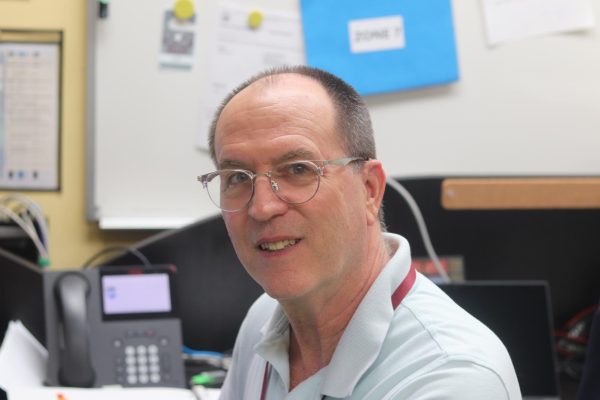Presence of artificial intelligence in academics provides both benefits and detriments to students’ education
Tribune News Service
In this photo illustration, the welcome screen for the OpenAI “ChatGPT” app is displayed on a laptop screen on Feb. 3, 2023, in London. Photo permission from Leon Neal/Getty Images/TNS.
February 13, 2023
Hours of work condensed into mere minutes, the student sweeps aside the writing outline given by the teacher in exchange for a computer. Entering the words “ChatGPT” into the search engine bar, the student smiles when the correct website pops up. Once the assigned prompt is typed into the platform, the essay writes itself. The job is done.
The evolution of artificial intelligence is ongoing, but recent developments have brought about its changing role in academic settings. AI is a term used to describe technology that mimics human intelligence and has primary functions that include problem-solving and learning.
A few examples of AI in everyday life include Face ID, ride-sharing apps and self-driving vehicles. Over the course of the past three years, AI has gone from being a potential asset to an impediment for educational institutions. This is particularly applicable when it comes to plagiarism, as the same software designed to detect it is now helping some students get away with it. In many MSD students’ opinions, AI is both helpful and harmful to their education.
AI in Use at School
Three of the largest AI-based programs used in relation to education are Grammarly, Turnitin and Photomath. A survey of 405 students at MSD revealed that 48% of students use Grammarly, 79% use Turnitin and 53% use Photomath.
Grammarly is a writing assistant that utilizes AI technology to proofread text and help improve various aspects of a written piece through punctuation, spelling and grammatical suggestions. Studies conducted by Grammarly found that their premium program helped 94% of the students using it improve their grades and 99% of students using it reported having increased confidence in their work.
“I’ve used Grammarly pretty much constantly throughout my schoolwork to enhance my writing since I tend to make pretty silly, simple, grammatical mistakes,” junior Isha Patel said. “I find it to be pretty advanced and almost always right, and it gives great suggestions and alternatives to whatever phrases I write.”
Similarly, Turnitin is an AI-centered plagiarism prevention service that promotes academic integrity and checks work for originality, citation mistakes and inappropriate copying in order to discourage students from misconduct and aid teachers in the grading process.
“Turnitin can be a helpful tool for identifying plagiarism,” English teacher Lauren Rower said. “Knowing assignments must pass a plagiarism checker might deter students from actually plagiarizing.”
Photomath is an app that uses AI technology to scan and solve a variety of math problems. It can explain to students how to reach a solution via step-by-step instructions and tutorials, serving as a form of accessible and understandable online tutoring. However, some students view the app as harmful.
“I have never used Photomath to assist with my schoolwork because I don’t feel that it is necessary,” sophomore Lexi Linenberg said. “Photomath seems more educationally debilitating than other online calculators, and I’ve always feared that I would grow dependent on it.”
Most math teachers discourage students from using the app for a variety of reasons.
“It allows students to be lazier with their work and not actually master the skills well enough to perform well without the app,” Algebra 1 teacher Shannon Walsh said. “I would rather them come to me with questions and learn instead of searching for the answer and not actually understanding. The use of Photomath in my class is also considered cheating since it is not your original work.”
Changing AI Landscape
In June 2020, Generative Pre-trained Transformer 3, a language model that generates written text, was released by OpenAI. This development revolutionized the field of AI and surpassed all its predecessors in its ability to create content with a language structure.
In November 2022, ChatGPT, a chatbot based on GPT-3.5, launched. Another huge development in AI technology, it interacts in a conversational manner, using a dialogue format. The program has many implications for education. When prompted, it can write entire essays in a matter of seconds. Currently, it can evade plagiarism detection tools, like Turnitin.
In a study done by EduRef–an education-based data, trends and research service–in 2021, college professors blindly graded GPT-3 written academic essays, alongside student written ones. They found that the software was able to achieve grades as high as a B.
The technology has only improved since, especially with the introduction of ChatGPT, which means that AI can easily write essays fit for a high school student that will not only be sufficient but obtain them high marks.
MSD teachers worry that despite the advantages AI provides when implemented into the school curriculum, it poses a threat when exploited by students.
“While AI may be helpful to kick-start a student’s thinking, I think it is ultimately hindering education and communication,” Rower said. “Students and individuals must communicate their thoughts, feelings, and perspectives in their own words. The inability to express oneself can negatively impact problem-solving skills and mental health.”
Teachers and students alike see the misuse of AI as something that will likely harm students in the future and pose long-term implications. Students voiced concern over the damage it could do to one’s ability to function appropriately in the workplace. Teachers, on the other hand, were more concerned with how it could lead to an individual’s lack of original thinking.
When it comes to preventative measures that can be taken to obstruct AI-based cheating, some teachers feel communication is key and that conveying the importance of upholding academic integrity and doing honest work is the best way for them to address it.
“I think that educators should communicate the importance of learning for the want of learning, not for a good grade,” Rower said.
Ethical Implications
The implementation of AI within academics is undeniable and so is its use by students, leaving people with differing opinions on whether it will prove to be more beneficial or harmful to their education. Many MSD students believe that while AI is a generally advantageous thing for students to use and have access to, there are specific instances in which its use is unacceptable.
Students believe that while using AI for reference or to guide them in their education is perfectly reasonable, using it to do work for them is crossing a line. They see how AI can be used as an asset and often take advantage of it on those occasions, but find it disagreeable when used to cheat or plagiarize.
According to the survey of MSD students, 89% have never used AI to complete an entire assignment for them, whether that be an essay or alternative piece of work. Additionally, 65% of MSD students believe that doing so is cheating, while 20% of MSD students are undecided on the subject. Meanwhile, 92% of MSD students reported that they have either never used or never heard of ChatGPT.
“I feel that the use of AI by students is unethical in terms of claiming work to be yours that was done by AI then copied,” sophomore Haylee Dorman said. “I feel that in some senses, when used to assist in understanding a topic it is okay, but feel that the use of AI in doing an assignment for you in order to do it quicker or do it better is unethical.”
Multiple students interviewed said they have never and would never consider using AI to write an essay or assignment for them because they value academic integrity and believe that if they chose to use AI to write for them, they would no longer feel confident in the work. They expressed that they would prefer to know that they were turning in work that authentically reflects their personality and abilities.
“I haven’t used AI to write an essay for me,” Dorman said. “When I complete an assignment, I value me putting in the effort and being able to credit that I did the work for the grade I got.”
The widely held belief of MSD students that using AI to write essays for them is plagiarism is consistent with the beliefs of both MSD faculty as well as academic institutions across the globe. Despite the fact that this has been ruled a form of academic misconduct, there is no way to prevent students from using it, and few plagiarism detectors can reliably discern when they do.
Schools must count on an honor system when it comes to this form of plagiarism. Plagiarism detection services, such as Turnitin will not or cannot dependably recognize AI written pieces, as plagiarized work, as it is original work, just not produced by the student turning it in. In the recent past, this did not create great concern due to the skill level at which AI was writing, but with the increasing number of developments in the field, it has begun to generate a large degree of alarm amongst educators.
In addition to measures that can be taken by educators, companies such as OpenAI can also make changes in an effort to prevent students from taking advantage of their programs. All text written by AI could be uploaded to an independent repository to allow for plagiarism detection. Age restrictions could also be implemented, as well as age verification systems to dissuade student use.
This story was originally published in the February 2023 Eagle Eye print edition.

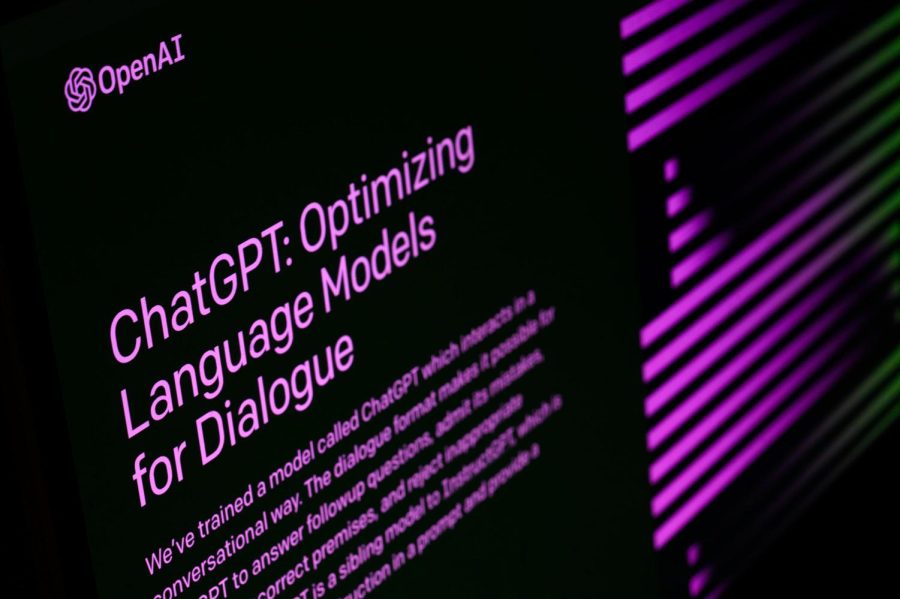

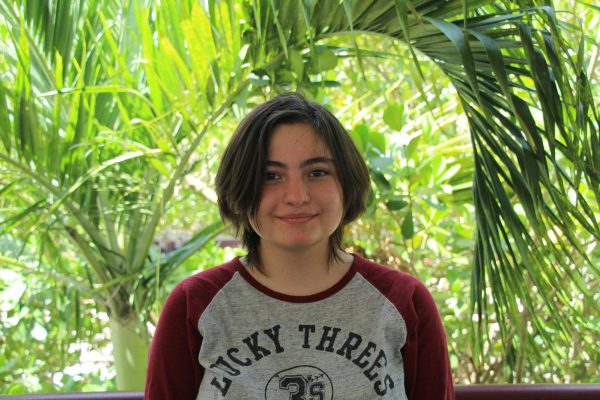


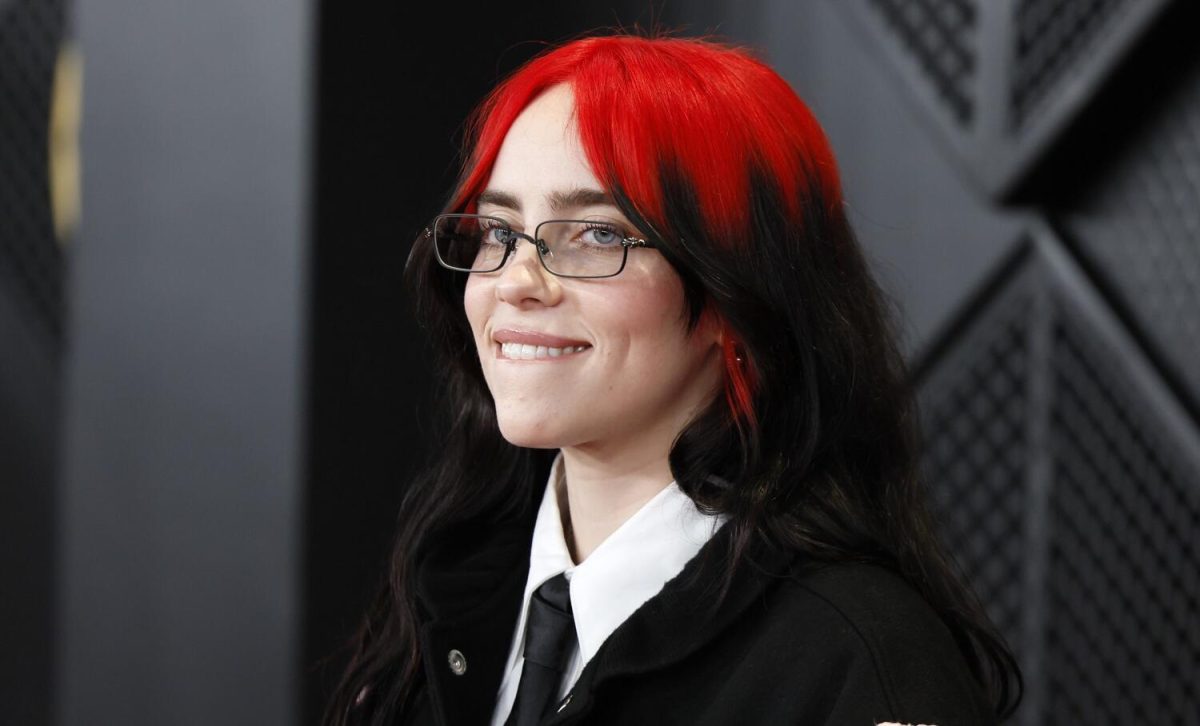
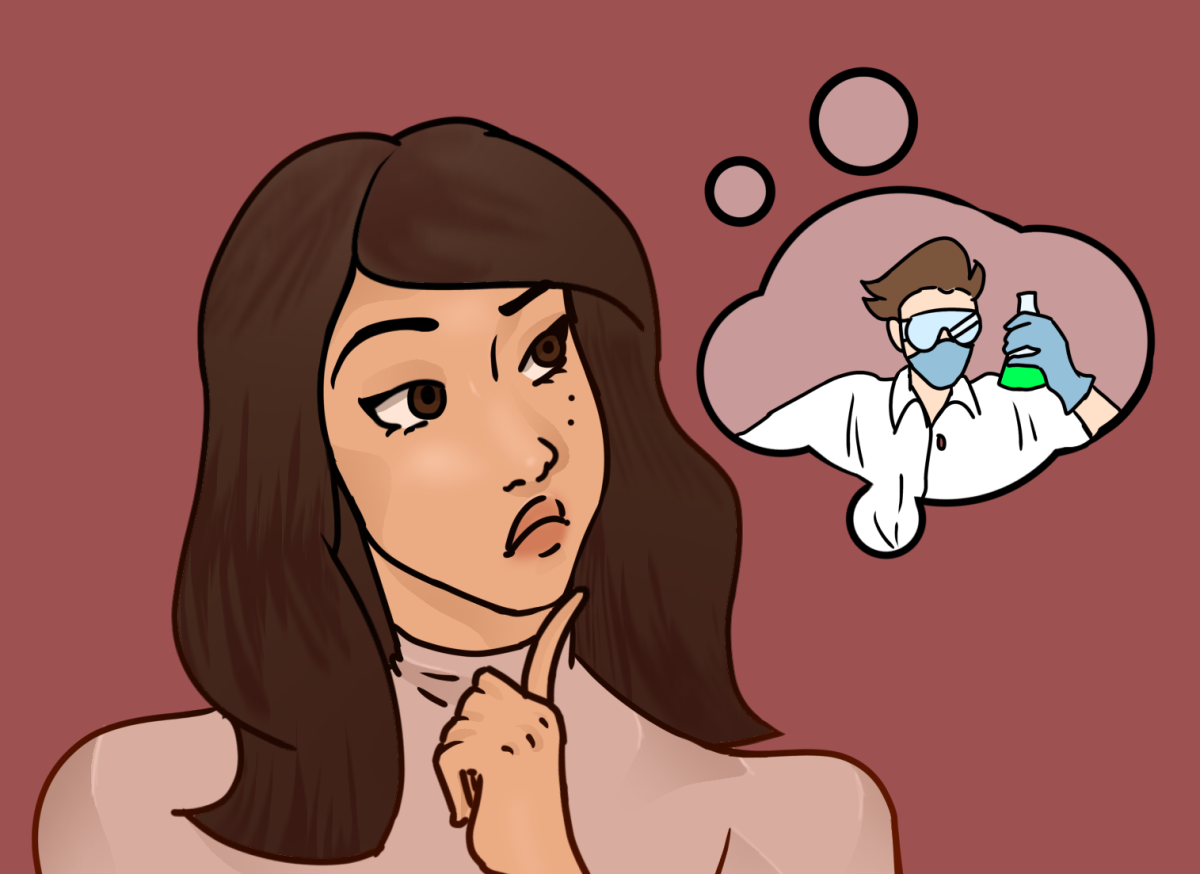
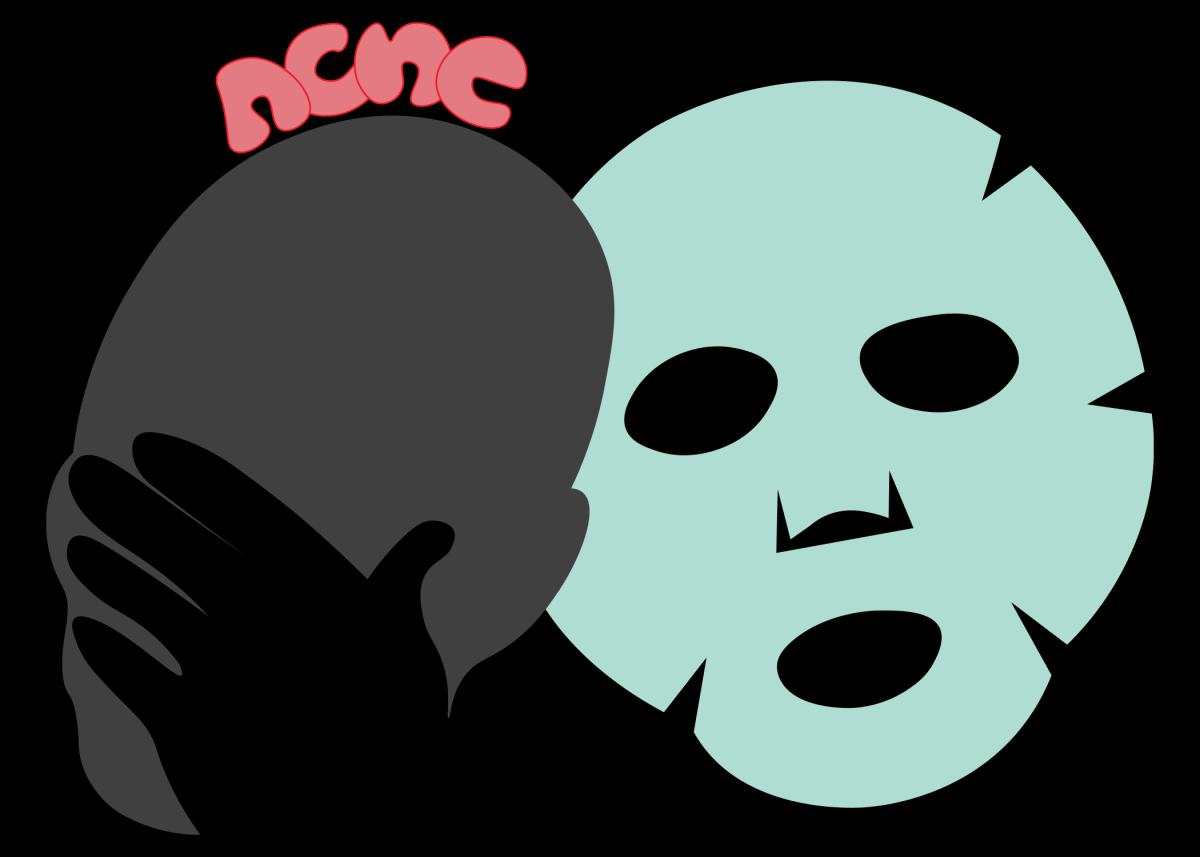





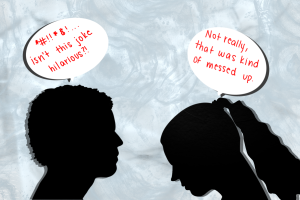


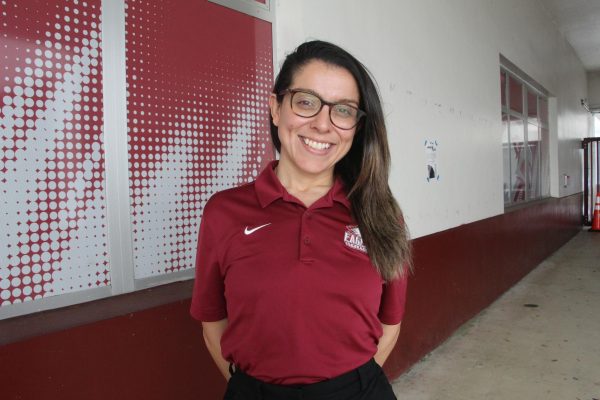
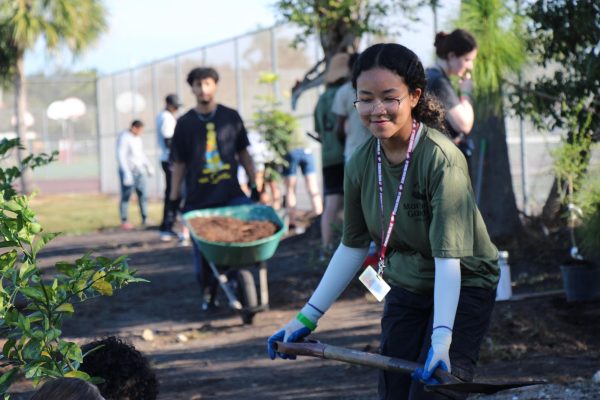

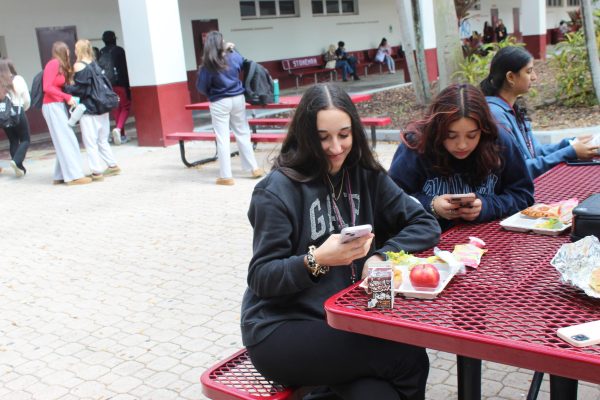
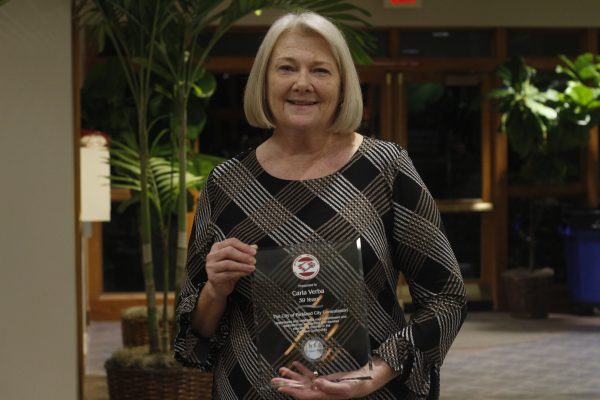
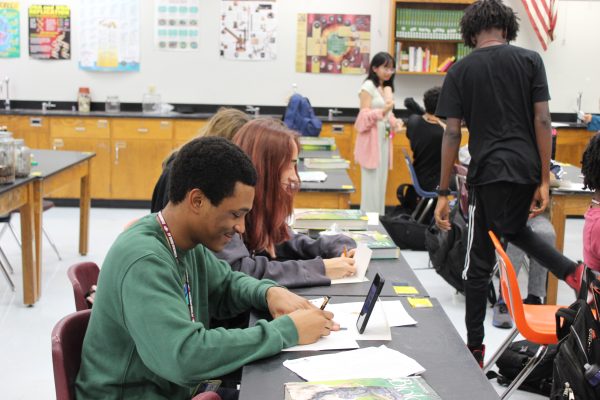
![(left to right) Seniors Stephanie Bilsky and Gracyn Haynes sport the DECA symbol, a triangle, at their first career fair, hosted on Dec. 6, 2023. The career fair had 12 business for students to explore and ask questions about. What we wanted to do is just take what weve learned [in DECA] and expand it to those students who arent enrolled in this class and dont have access and then just kind of take it to the community and allow students to discover their future as well, Haynes said.](https://eagleeye.news/wp-content/uploads/2024/01/9n9MEiC72JCfrptYKrZhoKhKscuboBiEju33GYeA-600x400.jpg)
